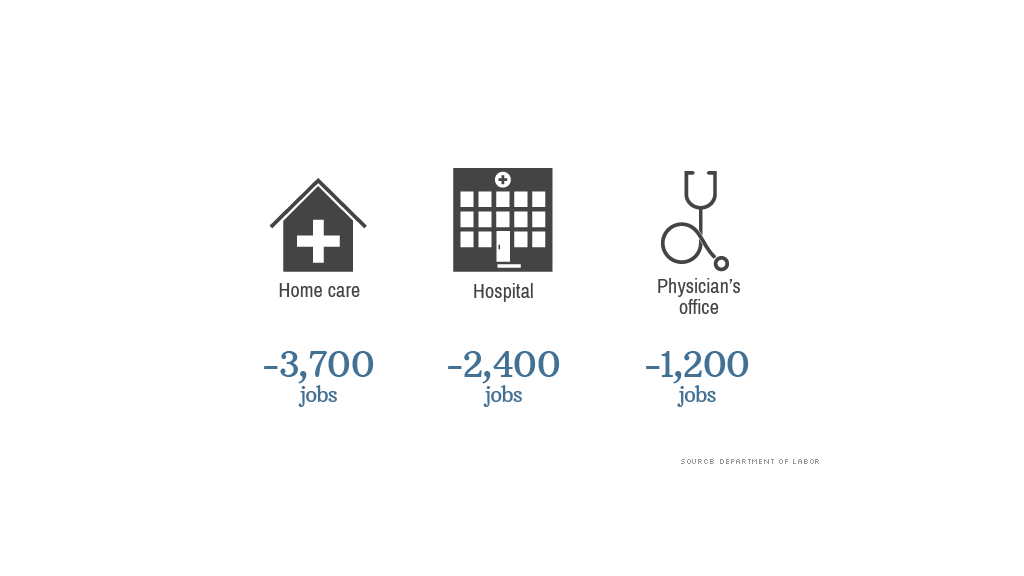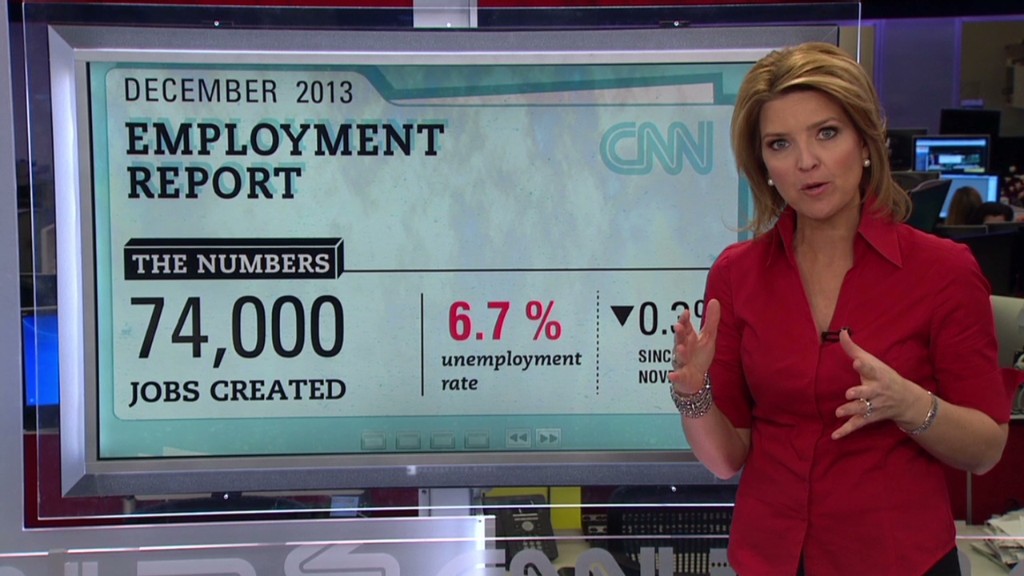
The health care jobs engine shifted into reverse last month, with the sector losing jobs for the first time in more than a decade.
Health care companies shed 6,000 positions in December, the first down month since July 2003, according to the government's monthly jobs report. This comes after a yearlong slowdown in hiring.
The hardest hit areas were nursing homes, which jettisoned 3,900 jobs, and home health care, which lost 3,700 positions. Hospitals got rid of 2,400 jobs, while physicians' offices reduced staff by 1,200.
For the year, health care added only 207,600 jobs, down from 320,600 a year earlier. It was the slowest year of growth since 1999.
Several notable hospitals, including the Cleveland Clinic, reported layoffs last year as the federal government cut reimbursement rates and patient care shifts more to outpatient and urgent care clinics. In fact, outpatient care centers were the only part of the health care sector to boost jobs last month, adding 3,600 positions.
Share your story: Have you lost a job in health care recently?
It's not so surprising that the health care sector, which had reliably added jobs even through the Great Recession, is finally taking a breather, experts said. The industry is in the midst of a restructuring aimed at slowing the growth in costs and improving quality.
"There needs to be a pause, which may lead to a reduction of jobs," said Stuart Altman, a health policy professor at Brandeis University.
Friday's dour news comes on the heels of another federal report released this week that showed health care spending growth remained low for the fourth year in a row. Spending on health care grew by only 3.7% in 2012, according to data released Monday by the Centers for Medicare and Medicaid Services.
"Since health spending has slowed down, we should expect at least some layoffs -- though not many," said Uwe E. Reinhardt, an economics professor at Princeton University.

Experts said the drop in health care is likely to be only temporary. It could even be reversed if the government revises the figures upward when it releases the next jobs report in February, noted Dartmouth Economics Professor Jonathan Skinner.
But even if the December health care jobs number remains negative, demographic trends suggest the industry's payrolls will have to grow again soon.
"In the long run, given the aging of the population and the need for health care, jobs will be added in the future," Altman said.


